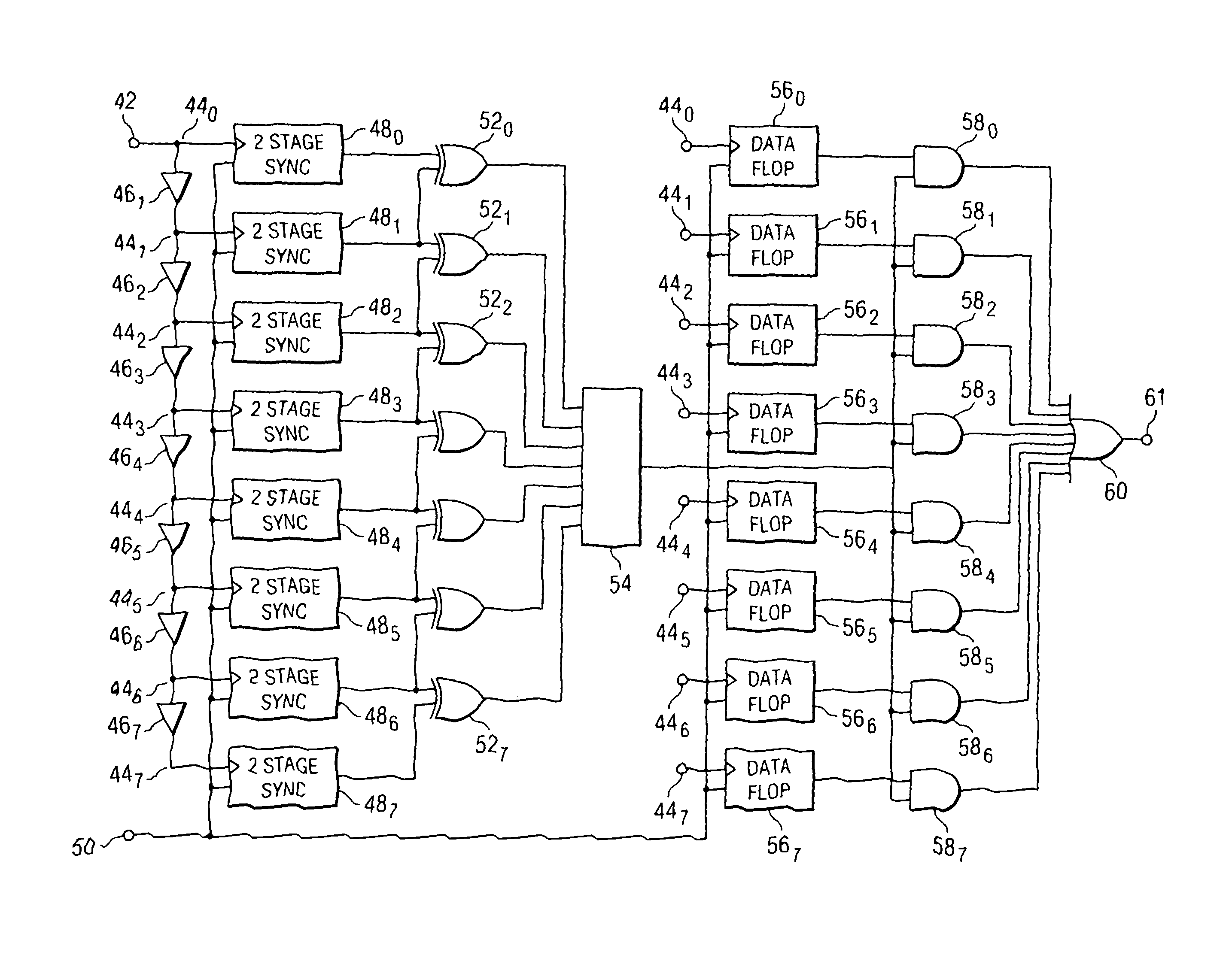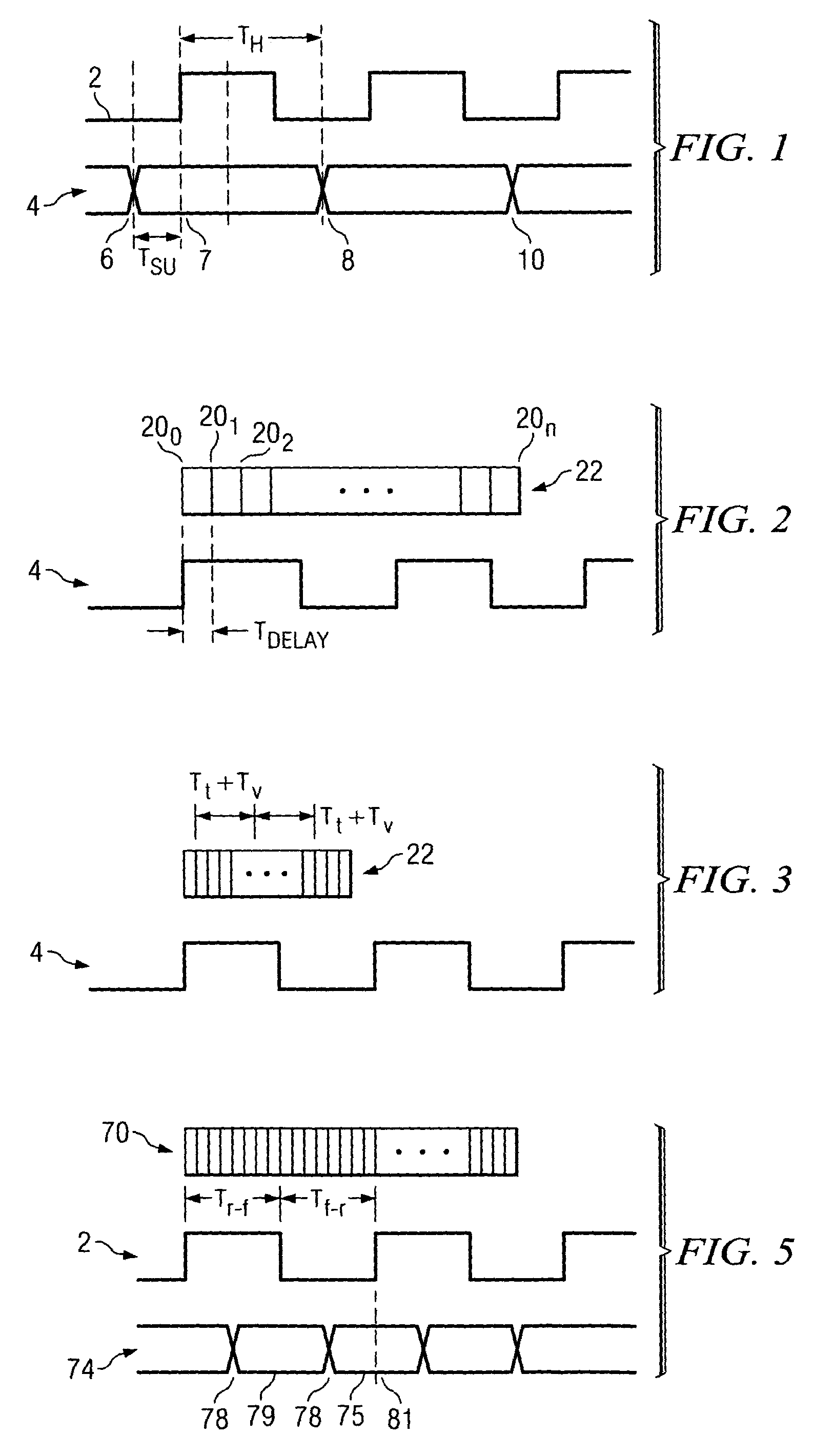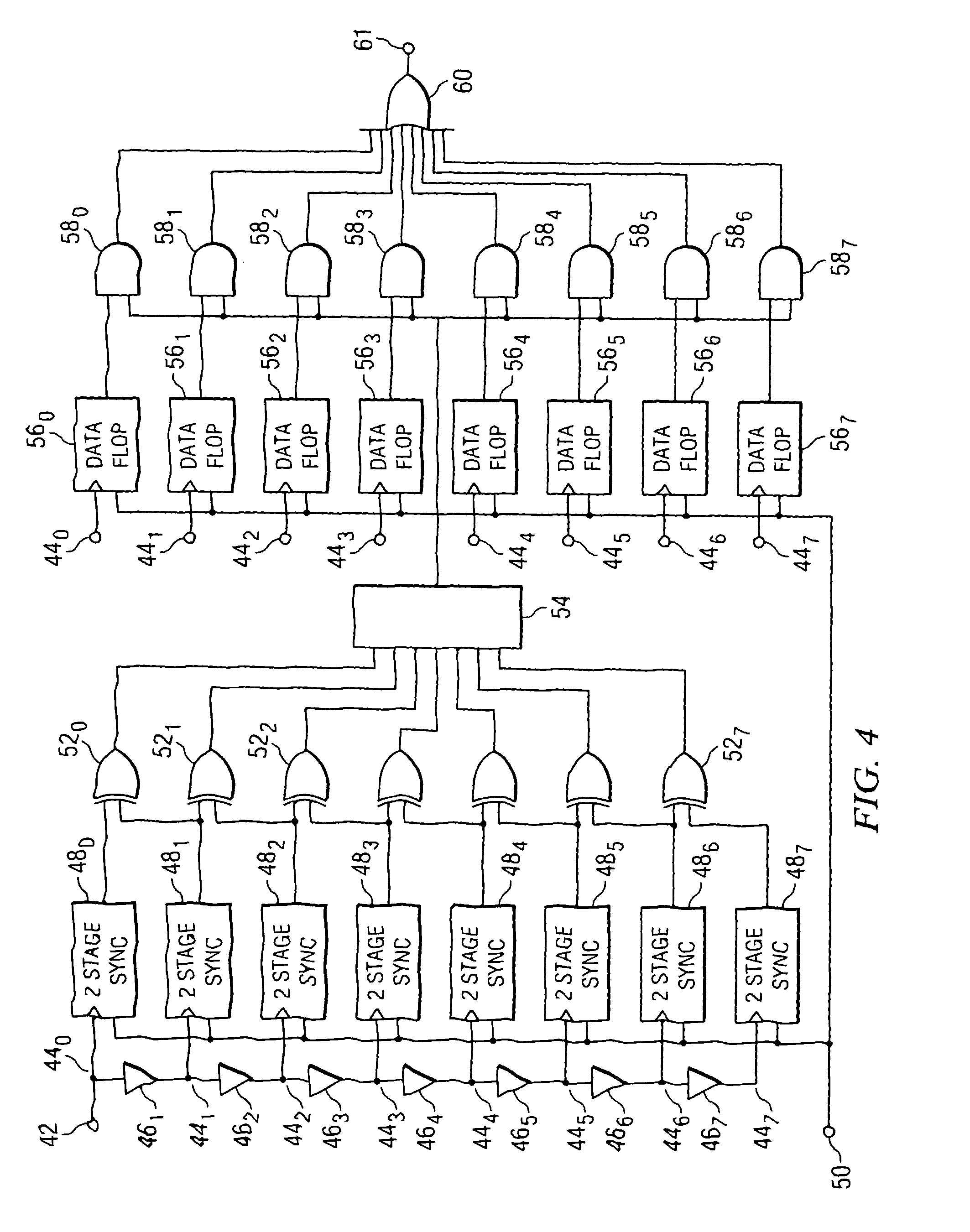Receive timing manager
a timing manager and data technology, applied in the field of digital circuits, can solve the problems of inability to detect data, insufficient setup time, data receiving logic, etc., and achieve the effect of improving data-receiving speed, reducing accuracy requirements, and improving data-receiving speed
- Summary
- Abstract
- Description
- Claims
- Application Information
AI Technical Summary
Benefits of technology
Problems solved by technology
Method used
Image
Examples
Embodiment Construction
[0026]The making and using of the presently preferred embodiments are discussed in detail below. It should be appreciated, however, that the present invention provides many applicable inventive concepts that can be embodied in a wide variety of specific contexts. The specific embodiments discussed are merely illustrative of specific ways to make and use the invention, and do not limit the scope of the invention.
[0027]The preferred embodiments of a receive timing manager are discussed. Receive timing manager (RTM) is a serial receive logic circuit used, for example, to assist in meeting receive data setup and hold timing. In this case, an RTM is a digitally developed apparatus to emulate a PLL. The RTM can sample multiple samples, and use a methodology to decide the optimal sampling time. An RTM responds quickly to the time variations. It can also drag the data back to the main clock so that the setup and hold time requirement can be met. It makes use of a fact that the data received...
PUM
 Login to View More
Login to View More Abstract
Description
Claims
Application Information
 Login to View More
Login to View More - R&D
- Intellectual Property
- Life Sciences
- Materials
- Tech Scout
- Unparalleled Data Quality
- Higher Quality Content
- 60% Fewer Hallucinations
Browse by: Latest US Patents, China's latest patents, Technical Efficacy Thesaurus, Application Domain, Technology Topic, Popular Technical Reports.
© 2025 PatSnap. All rights reserved.Legal|Privacy policy|Modern Slavery Act Transparency Statement|Sitemap|About US| Contact US: help@patsnap.com



